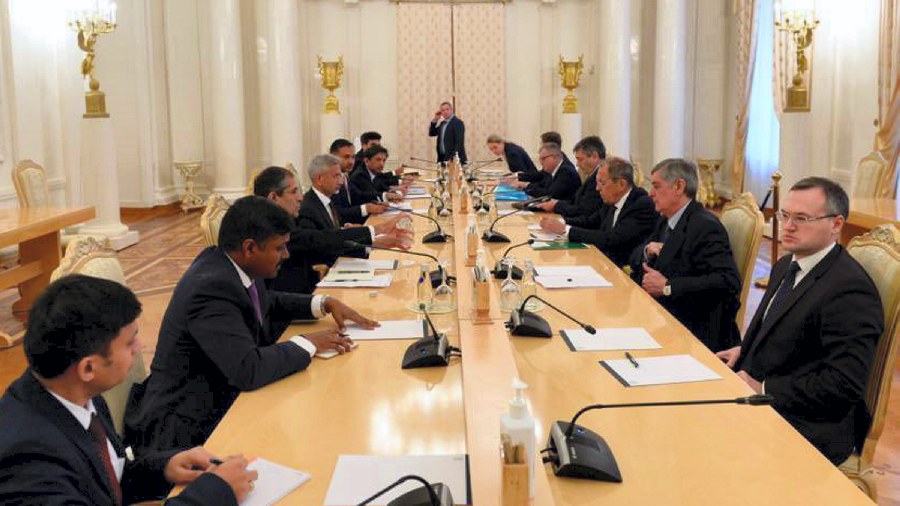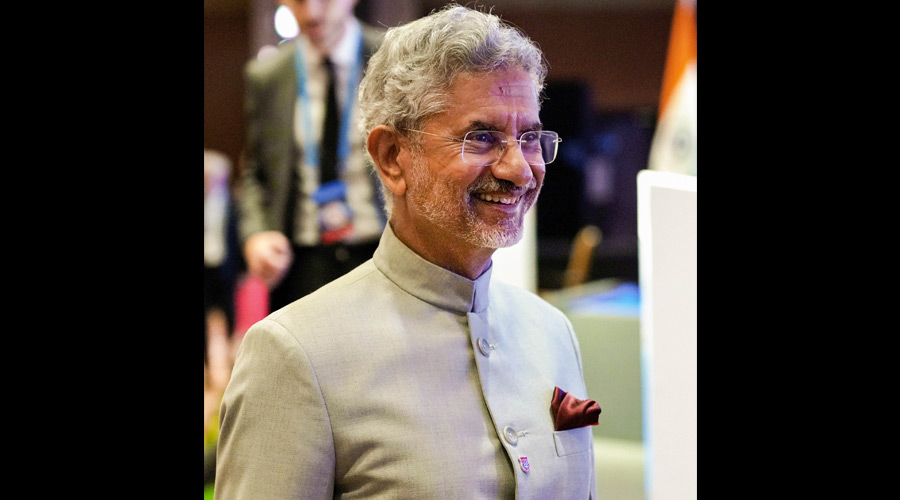The world must not forget about the situation in Afghanistan and there are reasons for concerns over terrorist groups operating from that country, External Affairs Minister S Jaishankar said on Tuesday after talks with his Russian counterpart Sergey Lavrov in Moscow.
At a joint media briefing with Lavrov, Jaishankar listed issues such as "factors of instability" such as terrorism and its cross-border manifestation and said it remains a "major concern".
The external affairs minister said the Afghan issue figured in his talks with Lavrov and asserted that the neighbours of Afghanistan should work together to ensure that no threat of terrorism comes out of Afghanistan.
"It is important that the world (does) not forget what is the situation in Afghanistan because today I think it is not getting the attention that it deserves," he said.
The external affairs minister said there is a humanitarian situation in that country and India has been supplying food, medicines and COVID-19 vaccines to the Afghan people as they are going through a "very difficult" phase.
"The international community with good reason has concerns about terrorism and terrorists who operate out of Afghanistan," he said.
"There have been commitments which have been given in this regard. It is legitimate that the international community, especially the neighbours today work together to ensure that there is no terrorism threat that comes out of Afghanistan," he noted.
Jaishankar also underlined the need for fulfilling the commitments covered under the UN Security Council resolution 2593, saying "It is important that those obligations are kept."
"We discussed how to continue our support for the people of Afghanistan, even as we urge Taliban to fulfill its international commitments. We are both members of various formats where the Afghan-related issues come up for review and we will continue to be in close touch," he said.
India has also been consistently maintaining that it is important that the international community continues to insist on the fulfillment of goals outlined in resolution 2593 on Afghanistan.
The UNSC resolution, adopted on August 30 last year under India's presidency of the global body, talked about the need for upholding human rights in Afghanistan and demanded that Afghan territory should not be used for terrorism and that a negotiated political settlement should be found out to the crisis.
Jaishankar said India and Russia have been in touch on the Afghan issue including under various formats of dialogue.
Following the Taliban's capture of power in Kabul, India has been consistently flagging concerns over the possible spillover of terrorist activities from Afghanistan to other countries in the region.
"It is part of the tradition of our relationship, India and Russia, that in some of these formats we have cooperated. So we look forward to being present here during the Moscow format as well," Jaishankar said.
The two sides also discussed the situation in the Indo-Pacific.
"We, as partners, highly value the centrality of ASEAN to the larger regional architecture. From the viewpoint of our respective interests, we exchanged views about how the goals of the international community are best served, including in securing the global commons," Jaishankar said.
Referring to the Iran nuclear deal, he said a way forward must be found in the interest of global peace, security and non-proliferation.
"I hope to discuss in the coming session the prospects of the Iranian JCPOA, because India believes that a way forward must be found in the interest of global peace, security and non-proliferation," he said.
The Joint Comprehensive Plan of Action (JCPOA), commonly known as the Iran nuclear deal was finalised in 2015 between Tehran and several world powers including the EU. It was aimed at curbing Iran's nuclear ambitions.
The US had withdrawn from the deal in May 2018 and reimposed sanctions on Iran. There have been fresh efforts now to restore the deal.
"I also expect a wider exchange of assessments on the current situation in the Middle East what we call West Asia, including matters pertaining to Syria and Palestine. India today has a wide range of interests and a growing footprint," Jaishankar said.
He said the world is moving towards greater multi-polarity through steady and continuous re-balancing.
"And that especially means a multipolar Asia. As prominent nations who have a positive history of working together, this will naturally influence the conversations between Russia and India," he said.
The external affairs minister also talked about India and Russia being part of the G20, the BRICS and the Shanghai Cooperation Organization (SCO), amongst others.
"How we work together in these formats is also on our agenda. You all know that India has assumed the Chair of the SCO and will take over the Presidency of the G20 in December," he said.
"We strongly believe that the pressing concerns of the international community as a whole must be fully recognized and effectively addressed. The state of multilateralism, especially the working of the UN and its key organs, is today clearly wanting," he said.
"Even as we focus on the immediate, the case for reformed multilateralism including a reformed UN Security Council is becoming difficult to deny. We welcome Russian support for India in that regard," he added.












